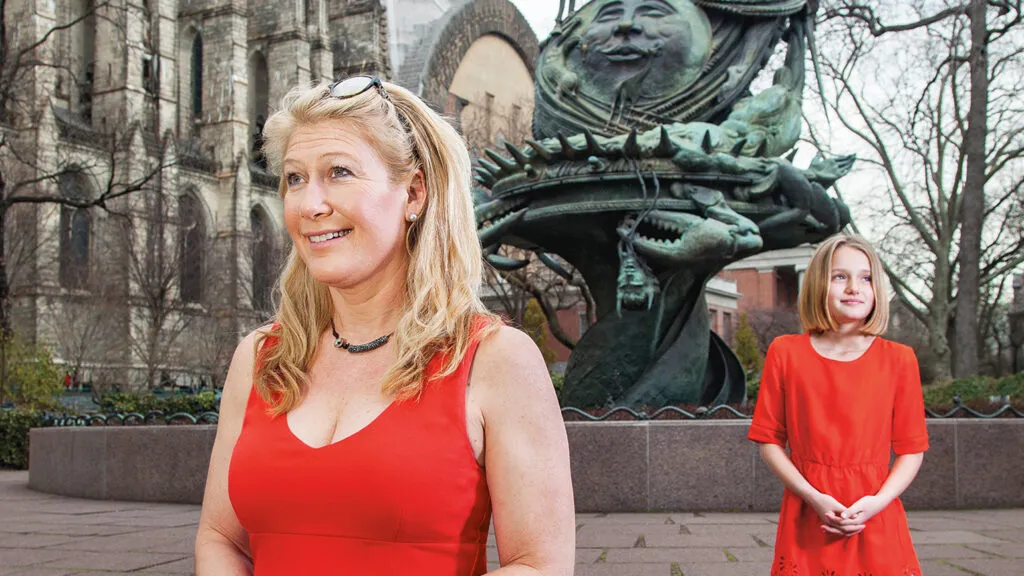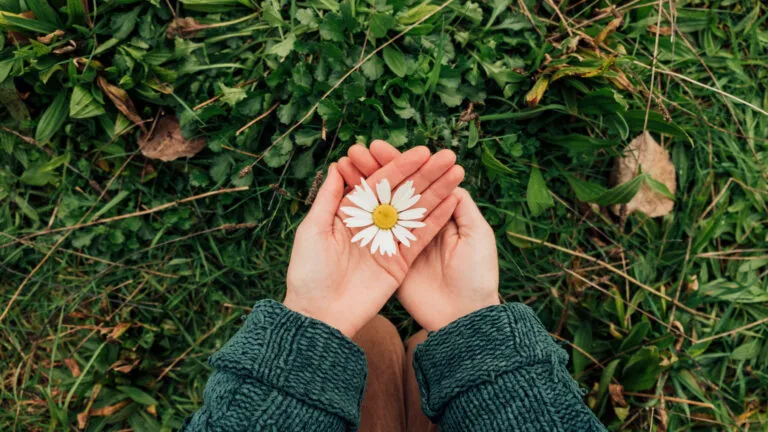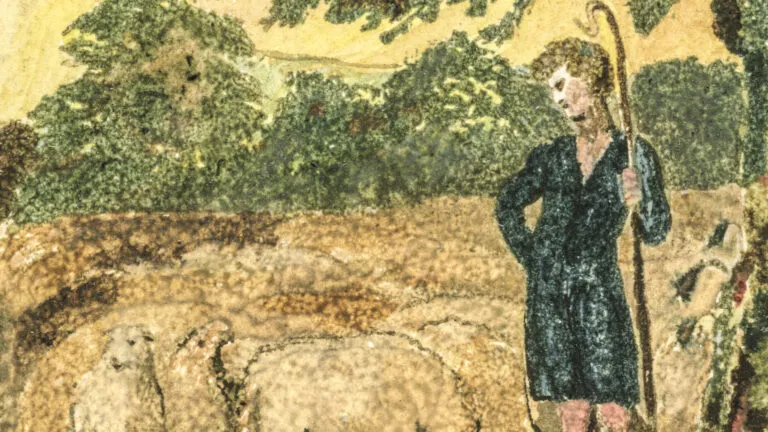Psychologist Lisa Miller, best-selling author of The Spiritual Child: The New Science on Parenting for Health and Lifelong Thriving and founder of Columbia University’s Spirituality & Mind Body Institute, has devoted her career to examining the influence of spirituality on our physical and mental development. On June 7, 2017, at 2 p.m. ET, Dr. Miller will participate in a Facebook Live event on the Mysterious Ways Facebook page. We hope you’ll join us then. In the meantime, we invite you to submit questions for Dr. Miller to mw@guideposts.org; we’ll include as many reader-submitted questions as we can during the live event.
How did you end up studying the science of faith?
I grew up in a Jewish family in the Midwest, a region that’s overtly spiritual. As a child, I remember being aware of this grand symphony of life. When I studied to be a psychologist, I kept waiting for people to talk about spirituality. No one said a word. Then I started working with clients and it became obvious that many children suffering trauma or depression recovered because they had a deeply spiritual understanding of reality. Without it, clients would never reach real wholeness. Psychological treatments and models of childhood development that were silent on spirituality made no sense to me. I decided to investigate.
What’s the most fascinating thing your research has revealed?
We are born spiritual. This is most clearly shown in twin studies, which look at twins raised together and apart to determine which traits are innate or socialized—what we’re born with versus what we learn. The capacity through which we experience spiritual life is inherited. On average, our spirituality is about one third innate, two thirds socialized. Spirituality comes via different channels—some people are inquiring, some are intuitive, some see the synchronicities in life—but the capacity is in our genetics. At the same time, how we are raised has an enormous impact. It tells two thirds the story of our spiritual life as adults.
BROWSE OUR SELECTION OF BOOKS ABOUT MIRACLES
This innate spirituality—do we lose it over time?
Children are knowers. So are adults. But the child is uncensored. I can go to a grocery store and be greeted sourly by a clerk for 10 years. Then the first day I show up with a baby, the whole place lights up. That’s because the baby looks onto each soul with pure love. They’re as happy to see the checkout clerk as their own grandmother. They’re born with spiritual instincts and understandings and hold on to them, unless we build walls inside of them.
My son, Isaiah, is adopted. Since he was a baby, I’ve told him how my husband and I prayed for him. When Isaiah was four, he asked, “What about the woman who gave me up?” Before I could answer, he said, “Oh, I know! God whispered in her ear and said you were crying for me.” I’d never told Isaiah that. He knew.
Do children have more mystical experiences than adults?
Both children and adults have very meaningful mystical experiences. But children don’t push away those moments of wonder. I call it a child’s “special knowing,” a natural spirituality that hasn’t yet been socialized. Children also have vivid dreams. Some dreams are prophetic. Others tell of where they are in their path. A child will often feel connected to an ancestor who’s passed.
One 3-year-old told her mother about a woman who kept her company in the playpen. An imaginary friend, her mom assumed. Then her daughter spotted an old photo. “That’s the woman who comes to play with me,” she told her mother. It was a great-grandmother the child had never met.
How can you foster a child’s natural spirituality?
As parents, we always have to come back to the spiritual core. For example, if your son gets mad at your daughter, you can say, “God made you brother and sister so you can take care of each other.” Ask your kids about their dreams. When they come to you with a mystical experience, say, “Wow, I’m so grateful you told me that.”
What about teens?
Spirituality has always flourished with coming-of-age. Nearly every tradition on earth has honored adolescence as a time of spiritual quest, whether it’s with a confirmation, a Lakota sun dance or a Bat Mitzvah. The teen awakes to questions. They can feel moments of magnificence and have glimpses of the divine. But they struggle to figure out the meaning of life. The best thing we can do is take this painful developmental process seriously. New brain material continues to grow from puberty up to the early 20s. So the way we handle our inner life as a teen can stay with us into adulthood. It literally crafts the brain.
How does a “spiritual brain” look?
Functional MRIs show that, in a resting state, the brain activity of people with developed spirituality resembled that of a meditating monk. A sustained spiritual life is also associated with cortical thickness. A thick cortex correlates with high IQ, a thin cortex with Alzheimer’s or depression. Our 2014 study showed adults with a sustained spiritual life had thickness in the parietal, occipital and precuneus regions of the brain, the same areas where you see thinness in those with recurring depression. Those regions of thickness have to do with orientation, perception and reflection.
Children with spirituality are 60 percent less likely to be depressed as teens, 40 percent less likely to engage in drug use and 80 percent less likely to engage in some risky behaviors. Cortical thickness was observed in study participants who said “spirituality is personally important,” regardless of their specific religious traditions.
Does this mean we walk into church and our brains get thicker?
It can be very helpful to go to a place of worship, but what science says is most helpful is cultivating the deep inner spiritual heart—a personal relationship with God. That’s where all the health benefits and thriving come from. A place of worship can help us cultivate the spiritual heart, as can family or nature.
What about other health benefits?
Study after study says we’re healthier if we have a strong spiritual core. We live longer, we get sick less and we’re less likely to become addicted. Our biological rhythms are more fluid. We have a more harmonious regulation of the stress hormone cortisol. Even our genes encode in a healthier way. Telomeres, the little wraparounds at the bottom of our genes, gradually get shorter with wear, tear and stress. But research shows that people with a contemplative life have a preservation of telomeres, rather than a shortening, suggesting that spirituality is one pathway to longevity.
How do the effects of spirituality compare to, say, changing our diet?
The health benefits of a spiritual life outweigh the health benefits of not eating fat or sugar. Spirituality positively affects physical health, mental health, quality of relationships—even your GPA in college. I don’t know of anything I could eat that would do so much!
Have you seen these outcomes with your patients?
I had one patient, a 13-year-old. Her father had been robbed and murdered. Her whole world had been taken away. After six months of traditional psychotherapy, we weren’t getting where we needed to go. Then one day, she came bouncing in and said, “I met the nicest boy at school. He was so polite, so kind. But I haven’t told you the best part. Guess what his name was?” It was an unusual one—the same name as her father. I asked her what she thought it meant. She said, “My father sent him. He’s looking after me.” She made steady progress after that.
Can we regain our childlike spirituality?
Absolutely. If we decide to be totally present. Delight in moments of awe and wonder. See people. The most irritating person on the bus is there for a reason. When there’s a tug at your heart or you have an intuitive surge, grab it—it’s a porthole to spiritual perception.
You can start with an old rusty prayer that awakens the child within you. Walk in nature or read poetry from your childhood. Draw a peaceful presence inside yourself, whether through prayer or meditation, and open a discussion with your higher power, even if it feels awkward. Ask to renew that deep relationship with God. That’s the source of all health, thriving and resilience.





